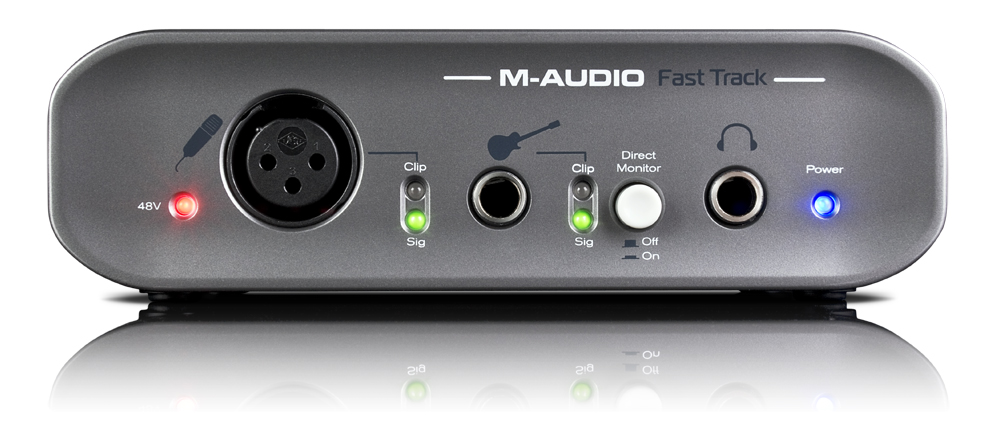- Applications For Photo Editing Machine
- Applications For Photo Editing Macbook Pro
- Applications For Photo Editing Machines

- January 02, 2020
- 18 min to read
There are some built-in photo editing apps in mac that offer plenty of editing tools. But honestly, if you want to edit your photo as a professional level Or quality image you need some best photo editing apps. For photo editing, mac is the best choice because it’s faster processors & high memory. You will get an excellent experience using. The Best Photo Editing Software for 2020. Whether you're a casual smartphone shooter or a professional using an SLR, software can get the most out of your images. Organizing photos can be fun when you have a third-party app on your Mac. We have listed some of the best photo management apps for Mac. CyberLink PhotoDirector 365. Cyberlink PhotoDirector 365 is a photo management tool that not only helps you to organize your photos in a neat manner but also provides advanced editing tools.
Most free photo editors available on the App Store are quite basic, offering just a limited number of filters and allowing you to easily and quickly liven up your photos before posting them on social media.
But if you’re an aspiring or professional photographer, you probably need a more powerful app with a broader set of tools to use your creativity to the fullest. Besides, you probably use your Mac for photo editing because working on a large screen makes it possible to adjust the slightest details.
1. Apple’s Photos (Built-in app)
Apple’s Photos app is included for free on all recently released Macs. It does a good job at organizing your photos, but its collection of photo enhancement tools leaves much to be desired. Hopefully, our selection of the best free programs for photo editing on Mac will help you choose the right app to suit all your creative needs.
2. Luminar (7 days trial)
Luminar is another full-featured photo editor that’s popular with both Mac and Windows users. It can work as a standalone app as well as a plugin for such popular programs as Apple Photos.
Luminar uses Artificial Intelligence to enable sophisticated yet quick photo enhancements. Among these AI features are Sky Enhancer, which adds more depth and detail to the sky in your photos while leaving other areas untouched; Accent AI, which analyzes a photo and automatically applies the best combination of different effects to enhance your image; and Sun Rays, which allows you to place an artificial sun and adjust the lighting to your liking or make the sun rays already in your photo look even more incredible.
Luminar has over 60 filters you can apply to your photos to enhance them in a moment. Luminar also provides a set of powerful tools for cropping, transforming, cloning, erasing, and stamping, along with layers, brushes, and many more incredible features. Luminar supports the Touch Bar on the latest MacBook Pro, making photo editing even more effortless and pleasing.
3. Photolemur 3 (Free Version with watermark)
Photolemur is a relative newcomer on the photo editing market but it has all the chances to win the favor of beginner photographers and hobbyists. Running on Artificial Intelligence, Photolemur is a completely automatic photo enhancer, meaning that it does all the editing for you in no time. It has the simplest interface, with only a few buttons and sliders to adjust the enhancement to your liking and view the before and after results.
Command prompts for mac terminal. Enter administrator commands in Terminal on Mac. You must be an administrator or root user, also called superuser, to execute many of the commands used to manage a server. For example, if you’re not an administrator or a root user, entering the shutdown command gives you an error. In this post, I will about Windows Command Line (CMD) and Mac OS Terminal Navigation Commands. Knowledge of CMD/Terminal commands may be needed for using command line interfaces (CLI) of applications where Graphical User Interface is missing, or when CLI provides a faster/easier way to perform a task. Let’s see some of the commands.
All you need to do is choose a photo (or a few) that you want to improve, drag and drop or import them using the Import button, and let the program make enhancements. After it’s done, you can compare the edited version with the original image by using the before–after slider and, if you want, adjust the skin tone or even enlarge the eyes using additional sliders. Pretty easy, huh?
Mac interface for pc. This interface is in the same series as the Tascam US-16×08 interface, except it provides more inputs and outputs, making it suitable for an engineer/musician who requires this. Before talking about the features or specifications, this Scarlett 2i4 is very similar to the Scarlett 212, except it has 2 additional line outputs, and 2 additional balanced outputs Not only does this make it an ideal, high-quality device for recording, but also live performance. If you’re looking for more inputs, let’s say 4, potentially to an instrument from multiple angles at one time, this interface is the perfect solution, offering high-quality hardware without breaking the bank. Before commenting on this, I actually own the Focusrite Scarlett Octopre MKII which is a former modelSo what can I say about it, well I love it!It was rather inexpensive for the price, and the quality of the recordings it provides is superior to other interfaces of the same price budget.
Photolemur also offers a number of impressive styles to touch up your photos and give them a sophisticated and professional look. With this app, you don’t need to stuff your head with photo editing nuances and terms. Just run Photolemur and watch the magic happen!

4. Aurora HDR (14 days trial)
As you probably can tell from the name, Aurora HDR is designed to help photographers enhance their HDR photos, making them even more detailed and beautiful. It’s an ideal tool for editing your photos, with an extensive collection of more than 20 tools including details, tone, mapping, color, glow, and vignette. Each tool has its unique selection of controls to adjust its effects.
Aurora HDR enables you to work with brushes, layers, and masks, and provides a number of automatic AI tools for recognizing and removing noise, enhancing colors, lighting, and details, improving clarity, and adding contrast to dull areas while leaving other areas untouched.
Aurora HDR does a great job dealing with difficult lighting situations and creating full-of-life images while being easy to use.
5. Pixelmator (Trial 30 Days)
Pixelmator is a photo enhancer beloved by many Mac users, as it offers a good combination of a modern and simple interface, the ability to work on multiple layers, and powerful features that take photo editing to a whole new level. With so many editing tools, brushes, and effects, you can enhance your photos to your liking. You can choose between two versions of Pixelmator – standard and pro – depending on your needs. The standard version is great for basic photo editing with its selection of essential tools and filters, while the pro version is packed with extra brushes, tools, and effects that let you push your creativity to new boundaries. You can decide which version is suitable for you according to what features you’re looking for in a photo editing app.
6. Adobe Photoshop Elements 2020 (Trial link)
Photoshop Elements isn’t as affordable as other photo enhancers for beginner photographers. But luckily there’s a trial version available, so you can check it out before deciding whether this app is worthy of your money. Photoshop Elements acquired many powerful features from Photoshop, only Elements is simplified for amateur photographers and enthusiasts. It includes a good number of effects and filters, plus automated editing options for improving lighting, color balance, and exposure, and even opening closed eyes and reducing the effects of camera shake.
In addition to all of these awesome features, Photoshop also offers editing modes for beginners, intermediate users, and experts. Beginners will probably prefer Quick mode, as it focuses on essential tools to quickly enhance your photos by improving color, lighting, and other basic settings. Guided mode provides intermediate users with step-by-step guidance with more professional features like artistic effects, skin tone correction, and background replacement. Expert mode gives you full access to the app’s really powerful editing features and is ideal for creating stunning images.
7. Affinity Photo (Free Trial)
Affinity Photo’s interface may seem overwhelming at first, especially for novices, but when you come to grips with it you’ll find that the app is just what you’ve been looking for. Its numerous professional tools, effects, and filters encourage you to get creative with your photos. Among the coolest features Affinity Photo has to offer is a before and after view to compare the original photo with its edited version.
Affinity Photo works with 15 file types, including common ones like PDF, PSD, JPG, and GIF as well as some less popular ones. The app amazes with its abundance of basic and top-notch editing tools, allowing you to tweak your photos using all possible kinds of instruments. Affinity Photo allows you to edit HDR photos, apply artistic filters and effects, play with masks and layers, and create breathtaking compositions by combining several images in one. If you find its interface a bit much and are afraid of getting lost in all those advanced tools, you should probably look for something more suitable for your level. But Affinity Photo is worth mastering.
8. Google Photos
Google Photos is a popular cloud storage service for photos and videos. It can’t boast countless masterly tools like other photo enhancers that we review in this article, but it includes some fundamental features like filters, color adjustment sliders, and transformation tools.
Although Google Photos may not be that helpful when it comes to editing photos, it does a pretty good job at storing high-resolution images and videos with 15GB of free online storage, compared to iCloud’s mere 5GB (which you can upgrade to 50GB for a monthly fee). If you’re planning to go on a trip and take plenty of photos, then it might be smart to sign up for Google Photos to use that extra storage space when you come back.
9. PhotoScape X (Free)
A relatively new photo editing app, PhotoScape X has been gaining popularity with many Mac and PC users since its release in 2008. Its interface is simple but unconventional, with a number of tabs running along the top of the window. Each is responsible for a specific stage of editing. The Viewer tab allows you to browse and organize your photos. After you pick a photo, you can switch to the Editor tab, which includes a broad set of instruments, filters, and effects and a useful feature that enables you to compare the adjusted photo with the original.
The next tabs, including the Batch tab, mainly concentrate on editing and renaming multiple photos at once. The GIF tab allows you to easily create an animated GIF from a group of selected photos.
The downside of PhotoScape X is a lack of selection tools, so all changes are applied to the whole image rather than to a selected part.
10. Gimp (Free)
Gimp is a free open-source photo editing app that has been on the market for over 22 years and is available for Windows, Mac, and even Linux. Unlike many free apps, Gimp doesn’t have any ads or in-app purchases. Its grey interface might seem a little old-fashioned and it may be a bit sluggish when it comes to complex effects, though.
Gimp offers a vast collection of advanced tools that hardly any free photo editor can boast. It has numerous enhancement options such as clone and heal brushes, layers and channels, accurate selection tools, a number of transformation instruments, and, of course, color adjustment controls. Gimp is one of the most powerful tools for enhancing photos and is beloved by so many users for its price (free) and versatility. But if you can’t come to grips with Gimp’s interface, it may be worth paying some cash for a more user-friendly program.

Best Photo Editing Software for Mac
While it is now possible, thanks to good mobile applications, to retouch photos on the fly, however, powerful photo editing software is still in place to change the images in detail. Replacing an object in an image, creating complex photographic montages, superimposing different levels: the post-production needs of professional and amateur photographers are the most disparate and often finding the right software is not easy. In this article we are sharing with you some of the best Photo Editing Software for Mac.
How to Take Best Selfies in Low Light Conditions or Night Time
Now, if the aura of Adobe continues to prevail in the now disputed market of photographic publishing, it is clear that the competition is raging . So much the better for the user, better able to find the software that will adapt precisely to its specific needs.
The undisputed reference: Adobe Photoshop
Champion any category, we no longer present Photoshop. The term has even entered our current vocabulary: do not we speak now of a photoshopped silhouette? In its version CS6, the spearhead of the Adobe suite is today the most used software by professionals of the photo editing.
With a bewildering palette of tools and features, Photoshop lets you do whatever you want. In addition to the power of tools, it is especially its layer structure that allows you to edit complex images by isolating each element. But beware, the software requires solid training and is not within the reach of everyone, or all budgets. Also, it is often better to fall back on its reduced version, Photoshop Elements, available for Windows and Mac. All the great features of Adobe Photoshop make it best Photo Editing Software for Mac.
The open source solution: GIMP
Acronym for the GNU Image Manipulation Program, this software is the most complete free solution for photo editing. Open source and strong of its community of users and developers, GIMP today allows itself to challenge the monopoly of Adobe.
Powerful, GIMP supports a myriad of different formats. In addition, it works in layers, like Photoshop. It is also enriched with many plug-ins, but its use is more complicated than that of other programs. Another disadvantage: many functions are not automated. The totally free software with rich features is no doubt the best Photo Editing Software for Mac.
Professional photo editing: LightRoom
Developed again by Adobe, LightRoom is a software specialized in photo editing . Devoid of the most sophisticated tools in Photoshop, LightRoom focuses on photography alone.
LightRoom is not a limited program, far from it. The instruments available are professional and, at the same time, intuitive, making it an ideal instrument for improving and correcting your shots.
The ability to create slideshows, albums or books to print and share them in digital format makes it indispensable for the everyday use of any photographer. If you are a pro and ready to invest for a software which is best Photo Editing Software for Mac, then LightRoom is for you.
Mature over the years: ACDSee Pro
This software is far from being a newcomer in the history of photo editing, even if his career has had ups and downs. Deeply updated, it is now becoming a good place in the photographic post-production market thanks to a battery of convincing arguments: powerful tools, speed of execution and a price that defies the competition.
Like Photoshop and its Express version, this software comes in two versions, one for semi-professional photographers ( ACDSee ) and the other for amateurs (and ACDSee Photo Editor ), lacking the latter, the latter image management functions.
The Windows solution: Corel PaintShop Pro
Corel PaintShop Pro is more like an alternative (economical) to Adobe Photoshop than a competitor of LightRoom and ACDSee Pro. To compete with these, it is better to turn to Corel AfterShot Pro.
The spectrum of instruments is vast and allows you to work also in vector graphics. Corel is a good solution if you are looking for a very complete software at a lower price than the competition.
The Apple solution: Pixelmator
Wondering how to edit photos on Mac without Photoshop? Reserved for Apple users, the Pixelmator software is also a more intuitive and cost-effective alternative to Photoshop. The main instruments of the Adobe program are indeed all present and even simplified, and beautifully served by a captivating interface.
If you need to perform very advanced operations, this program will not be up to par, but if your retouching needs remain limited and you are looking for an economically affordable solution, Pixelmator is the program for you. Born for Apple devices, the Pixelmator is best Photo Editing Software for Mac.
Photo editing for everyone
Formerly reserved for the insider, because heavy of very sharp functionalities, the software of photo editing is democratized all the more quickly that the smartphones integrate devices always more powerful and of size to be measured with the classic device Reflex.
Applications For Photo Editing Machine
In post-production, for a deep transformation of images, nothing replaces computer software. However, app stores enrich their catalogs of applications that not only allow today to take better pictures, but also to retouch immediately before sharing them on the networks social.
Applications For Photo Editing Macbook Pro
10 Best Video Editing Apps for iPhone and iPad
Applications For Photo Editing Machines
[give_form id=”1495″ show_title=”true” show_goal=”false” show_content=”below” display_style=”modal” continue_button_title=”Donate”]


Comments are closed.